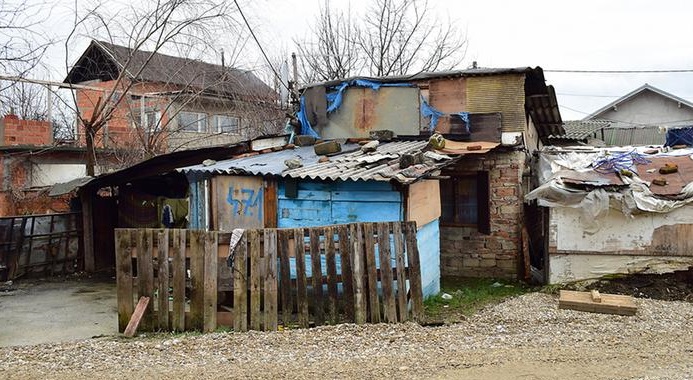International Roma Day is celebrated every year on April 8th, commemorating the first World Roma Congress in London in 1971, where the green and blue flag was reaffirmed as the emblem of the Roma people, but also the usage of the term “Roma”, meaning “man”, was accepted by the majority of attendees. In the circumstances of the coronavirus pandemic, it is responsible, important and in line with the principles of protection of human rights, among which are the right to life and health, to pay special attention to those who have been facing difficulties, which directly put their human rights in question on a daily basis, which was true even before the pandemic. The health system does not collect nor provide data on citizen’s nationality or ethnic origin, so neither the Croatian Institute of Public Health (HZJZ) nor the Croatian Health Insurance Fund (HZZO) have information on the status of health protection of Roma.
However, research conducted by the Centre for Peace Studies, shows that Roma in Croatia live in households that are underequipped, in overpopulated and secluded settlements, without health facilities or even health insurance. 50% do not even have a bathroom with a shower or a bathtub and 54% do not have a toilet in their homes, while 1/5th of 1550 Roma households covered by the research do not have a kitchen. Furthermore, they have three times less living space per member of the household compared to the general population, and about one quarter of households do not have refrigerators (26,6%) or freezers (27,7%). Considering that 68% Roma households do not possess a car, while the public transport has been shut down and it is forbidden to leave the place of residence without a special pass, the availability of medical care but also groceries and basic hygiene products, has fallen drastically for Roma population. If we add the deeply rooted prejudice and discrimination towards the Romani minority, it becomes evident that they need help and support, as otherwise the consequences of the COVID-19 pandemic might have a particularly deep impact on this community. This is why it is especially important that local and national authorities pay special attention to improve the level of health services and sanitary protection for Roma families and in Roma settlements, and to make sure that drinking water and disinfectants are available. We have sent out inquiries on this topic to various local level actors where large numbers of Roma families and communities at risk reside, sometimes in woodland areas with no access to drinking water, with the aim of reminding of the importance of solidarity and support in the time of this pandemic. Not only that this is necessary to protect the Roma national minority, but providing aid and support to those at risk is in the interest of all, as it upholds and protects the public health and welfare. Furthermore, 80% of Roma children live in households without a computer, laptop or a tablet, making digital content unavailable to them, so their involvement in remote classes is questionable. In early March, all schools were instructed to estimate the number of their students with lower socio-economic status, in order to secure tablets and internet access. However, we do not have information whether this had ever taken effect. Moreover, even though the school classes are organized via television channels, these classes do not include preparatory lessons of Croatian language for children
who do not have sufficient knowledge of the Croatian language. Often it is the Romani children who do not speak it at a sufficient level, as they use their native language in their households. Based on our work on complaints related to the Roma minority and cooperation with Romani NGOs, councils and representatives, it is evident that the biggest obstacle faced by Roma students in the school system is precisely the language barrier, as many children start to use the Croatian language only at the beginning of their one-year preschool programme, and even more of them only start using it in school. As a result of poor vocabulary and insufficient understanding of the language, they have difficulties following the curriculum, and their communication and social skills are limited.
Without the preparatory Croatian language classes for preschool age, Roma children will have a hard time catching up and learning the language. This would prolong the inequality of their starting positions in relation to their non-Roma peers, and might leave a mark on their entire education or add to their early leaving from the school system and might eventually leave many Roma people living in poverty and social exclusion.


